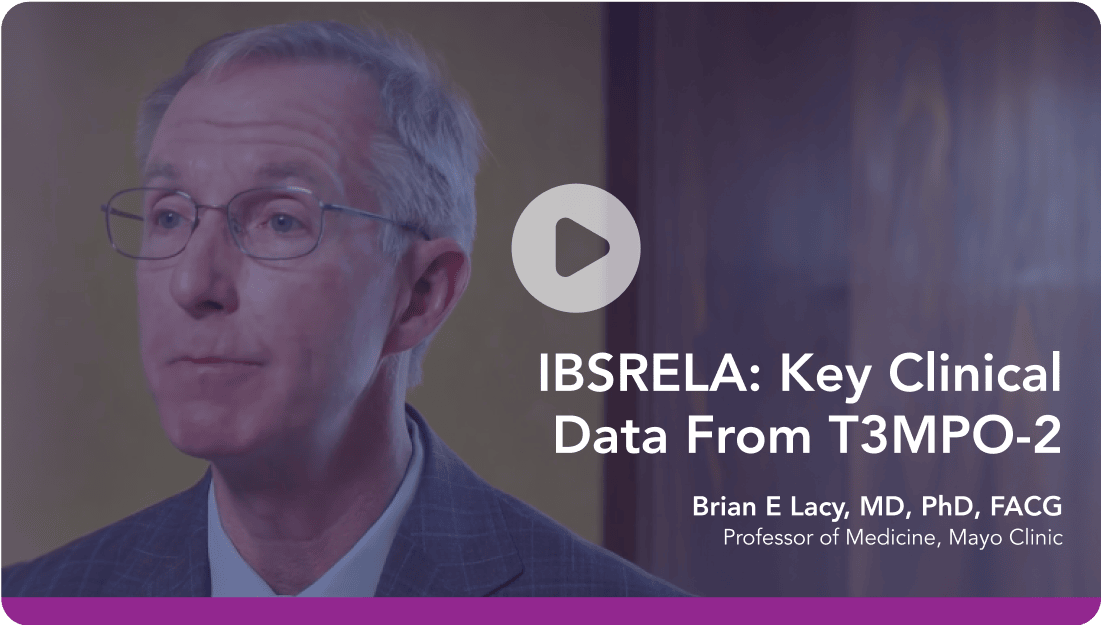IBSRELA Has Been Evaluated in Two Phase 3 Clinical Trials With Over 1,200 Adult Patients With IBS-C1-3
T3MPO-1 (N=606) and T3MPO-2 (N=620) were multicenter, double-blind trials of adults who met the Rome III Diagnostic Criteria for IBS-C randomized to receive IBSRELA 50 mg BID or placebo twice daily. The primary efficacy endpoint was the overall response for 6 or more of the first 12 treatment weeks.1-3
- T3MPO-1: 12 weeks followed by a 4-week randomized withdrawal period. 27% of IBSRELA-treated patients were overall responders, resulting in a placebo-adjusted difference of 8% (P=0.020)3
- T3MPO-2: 26 weeks with primary endpoint measurement through week 12. 36.5% of patients treated with IBSRELA were overall responders, resulting in a placebo-adjusted difference of 13% (P<0.001). See baseline characteristics2,4
Rome III Diagnostic Criteria: Recurrent abdominal pain or discomfort at least 3 days per month in the last 3 months associated with 2 or more of the following: 1. Improvement with defecation; 2. Onset associated with a change in frequency of stool; 3. Onset associated with a change in form (appearance) of stool. Criteria must have been fulfilled for the last 3 months, with symptom onset at least 6 months prior to diagnosis.5
T3MPO-2 primary endpoint
Significantly More IBSRELA-Treated Patients Were Overall Responders Compared With Placebo2
Responder Endpoints Through Week 122

36.5%
of IBSRELA-treated patients were overall responders2‡
Primary efficacy endpoint: overall response for 6 or more of the first 12 treatment weeks.
CSBMs defined as spontaneous bowel movements (unaided) accompanied by a sensation of complete evacuation.
‡Overall responder defined as: decrease in average weekly worst abdominal pain of greater than or equal to 30.0% from baseline AND an increase of at least one CSBM from baseline, both in the same week, for at least 6 of the first 12 weeks of treatment.















